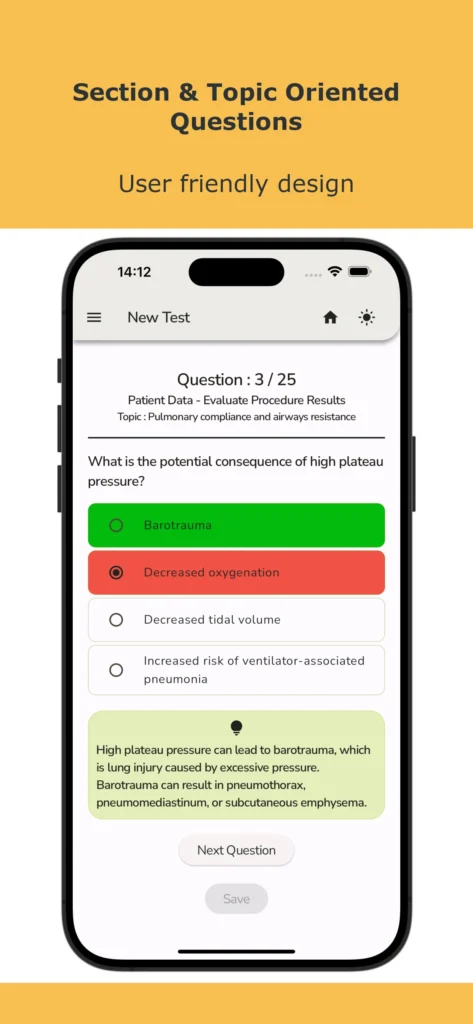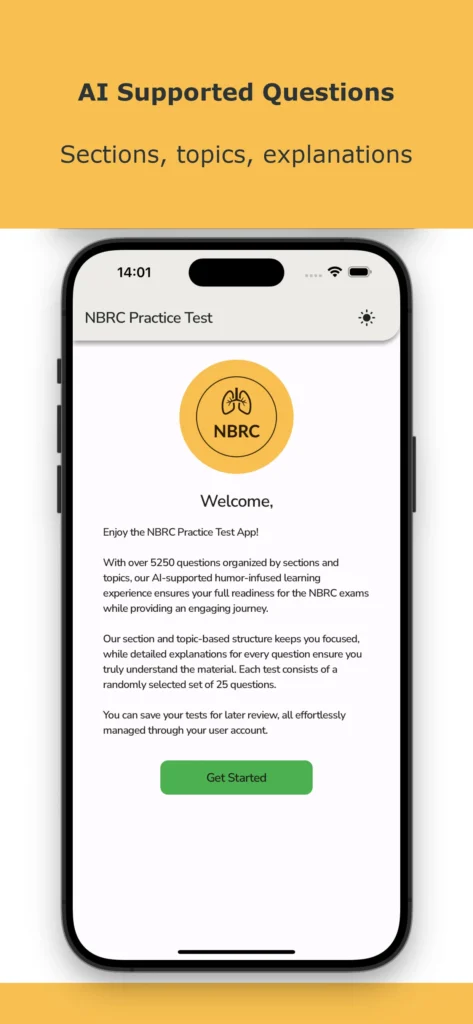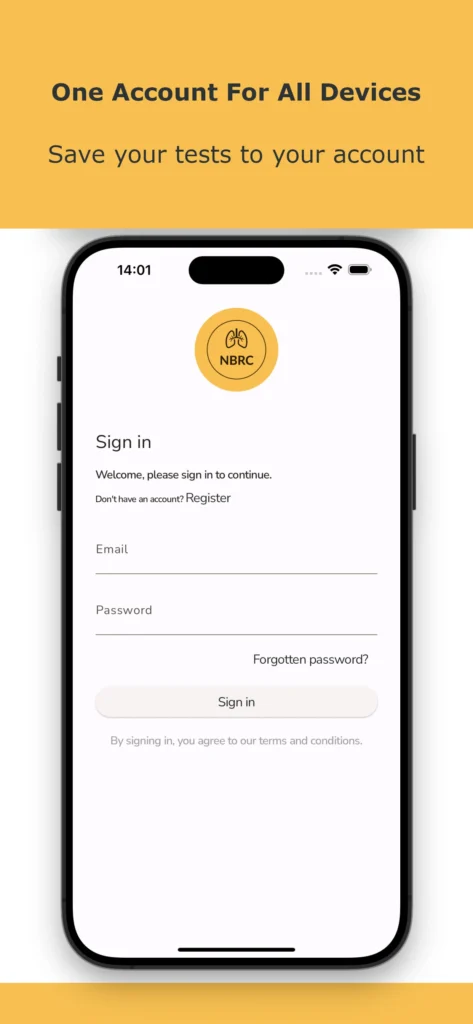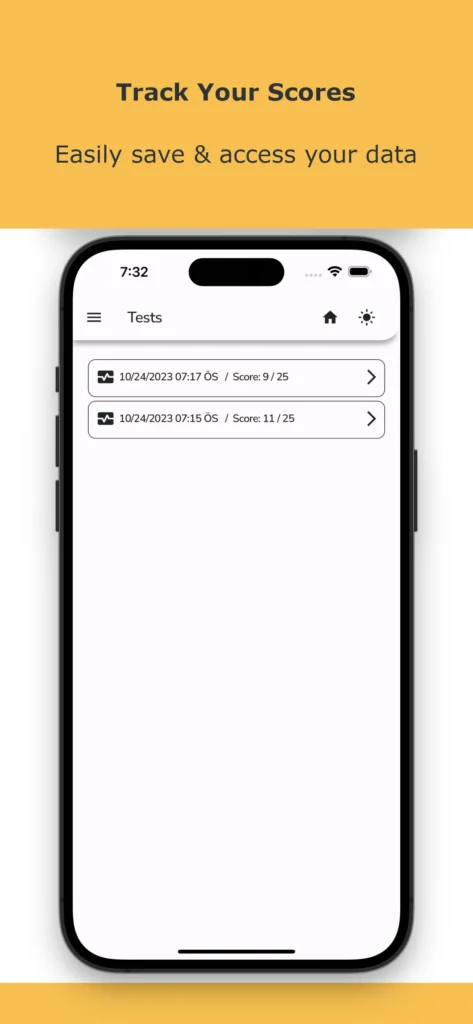Introduction to NBRC Testing
What is NBRC Testing?
NBRC testing refers to the examinations conducted by the National Board for Respiratory Care (NBRC) to assess the knowledge and skills of respiratory therapists. These tests are designed to ensure that respiratory therapists meet the standards set by the NBRC and are competent to provide quality care to patients.
Types of NBRC Exams
The NBRC offers several exams, including the Therapist Multiple-Choice (TMC) Exam, Clinical Simulation Exam (CSE), and Specialty Exams. The TMC Exam is a comprehensive test that covers the essential knowledge and skills required for entry-level respiratory therapists. The CSE evaluates the candidate’s ability to handle clinical scenarios and make appropriate decisions. Specialty Exams focus on specific areas of respiratory care, such as neonatal/pediatric respiratory care or adult critical care.
Where Can You Take NBRC Exams?
NBRC exams can be taken at authorized testing sites and centers across the United States. These sites are approved by the NBRC and provide a controlled environment for candidates to take their exams. To find a testing location near you, you can visit the NBRC website or contact their customer service for assistance.
Preparing for NBRC Exams
Preparing for NBRC exams requires a combination of knowledge, skills, and practice. It is recommended to study the exam content outline provided by the NBRC and use study materials that cover the required topics. Additionally, taking practice exams can help familiarize yourself with the format and types of questions you may encounter. The NBRC offers free practice exams, known as Self-Assessment Examinations (SAEs), which can be accessed through their website.
Benefits of NBRC Certification
Obtaining NBRC certification demonstrates your competence and commitment to the field of respiratory care. It can enhance your career prospects and open doors to new opportunities. Many employers prefer hiring certified respiratory therapists, and some states may require certification for licensure. Additionally, maintaining your NBRC credentials through continuing education shows your dedication to staying updated with the latest advancements in respiratory care.
NBRC Testing Sites and Centers
Find the Nearest NBRC Testing Site
If you are planning to take the NBRC exams, it is important to know where the testing sites and centers are located. The National Board for Respiratory Care (NBRC) has established various testing sites across the country to make it convenient for candidates to take their exams.
When scheduling your exam, you will have the option to choose a testing site that is most convenient for you. The NBRC has partnered with Prometric, a trusted testing center network, to administer their exams. Prometric has testing centers in many cities, making it easier for candidates to find a location near them.
To find the nearest NBRC testing site, you can visit the NBRC website and use their testing site locator tool. This tool allows you to search for testing sites based on your location or zip code. It will provide you with a list of nearby testing centers along with their addresses and contact information.
What to Expect at NBRC Testing Centers
When you arrive at the NBRC testing center, you will be required to present a valid ID and your admission ticket. Make sure to arrive at least 30 minutes before your scheduled exam time to allow for check-in procedures.
The testing center will provide you with a secure locker to store your personal belongings during the exam. You will be assigned a computer workstation where you will take your exam. The testing center staff will provide you with any necessary instructions and answer any questions you may have.
It is important to note that the NBRC exams are computer-based and are administered in a secure and proctored environment. This ensures the integrity of the exams and maintains a fair testing environment for all candidates.
Preparing for NBRC Exams
Before taking your NBRC exam, it is crucial to prepare and study effectively. The NBRC offers a variety of resources to help you prepare, including free practice exams and self-assessment examinations (SAEs).
The free practice exams provided by the NBRC are a great way to familiarize yourself with the format and content of the actual exams. These practice exams cover different topics and allow you to assess your knowledge and identify areas where you may need further study.
In addition to the free practice exams, the NBRC also offers self-assessment examinations (SAEs). These SAEs are designed to simulate the actual exam experience and provide you with a comprehensive assessment of your knowledge and skills. They are a valuable tool for identifying your strengths and weaknesses and focusing your study efforts.
Overall, taking the NBRC exams requires careful planning and preparation. Knowing the locations of the testing sites and centers, understanding the procedures at the testing centers, and utilizing the available resources for exam preparation will help you succeed in your NBRC exams.
NBRC Exams: A Comprehensive Guide
Introduction to NBRC Exams
If you’re pursuing a career in respiratory therapy, you’re likely familiar with the National Board for Respiratory Care (NBRC) exams. These exams are a crucial step in becoming a certified respiratory therapist or advancing your career in the field. In this comprehensive guide, we’ll provide you with all the information you need to know about NBRC exams, including testing sites, centers, and locations.
Types of NBRC Exams
The NBRC offers several exams that assess the knowledge and skills required for respiratory therapy practice. The most common exams include:
- Clinical Simulation Examination (CSE)
- Therapist Multiple-Choice Examination (TMC)
- Specialty Examinations (such as Neonatal/Pediatric Respiratory Care, Sleep Disorders Testing and Therapeutic Intervention, and Pulmonary Function Technology)
Testing Sites and Centers
The NBRC has established testing sites and centers across the United States to make it convenient for candidates to take their exams. These sites are located in various cities and states, ensuring accessibility for aspiring respiratory therapists nationwide. To find the nearest testing site, you can visit the NBRC website and use their exam site locator tool.
Choosing the Right Testing Location
When selecting a testing location, consider factors such as proximity to your residence, availability of exam dates, and the convenience of travel. It’s important to choose a location that allows you to perform at your best on exam day. Additionally, some testing centers may offer amenities such as free parking or nearby accommodation, which can make your testing experience more comfortable.
Preparing for NBRC Exams
Preparing for NBRC exams requires a combination of knowledge, practice, and confidence. To help you succeed, the NBRC provides various resources, including free practice exams and self-assessment examinations (SAE). These resources allow you to familiarize yourself with the exam format, assess your strengths and weaknesses, and identify areas that require further study.
Free NBRC Practice Exams
The NBRC offers free practice exams that simulate the actual testing experience. These practice exams are an excellent way to gauge your readiness and get a feel for the types of questions you’ll encounter on the real exam. Taking multiple practice exams can help you build confidence and improve your test-taking skills.
Utilizing NBRC SAE Exams
In addition to practice exams, the NBRC also offers self-assessment examinations (SAE). These exams are designed to provide a comprehensive review of the content covered in the actual exams. SAE exams can help you identify areas where you need to focus your studying and reinforce your understanding of key concepts.
Conclusion
Successfully passing NBRC exams is a significant milestone in your respiratory therapy career. By understanding the different types of exams, choosing the right testing location, and utilizing the available resources, you can increase your chances of success. Remember to take advantage of free practice exams and SAE exams to prepare effectively. Good luck on your NBRC journey!
Preparing for NBRC SAE Exams
Introduction to NBRC SAE Exams
If you are planning to pursue a career in respiratory therapy, you will need to pass the National Board for Respiratory Care (NBRC) exams. The NBRC offers a series of exams to assess the knowledge and skills of respiratory therapists. One of the key exams is the Self-Assessment Examination (SAE) which is designed to help you prepare for the actual board exams.
The NBRC SAE exams are comprehensive assessments that cover a wide range of topics related to respiratory therapy. These exams are designed to simulate the actual board exams and provide you with an opportunity to gauge your readiness and identify areas where you may need further study.
Tips for Preparing for NBRC SAE Exams
Preparing for the NBRC SAE exams requires a strategic approach. Here are some tips to help you maximize your preparation:
- Create a Study Schedule: Start by creating a study schedule that allows you to allocate dedicated time for each topic. This will help you stay organized and ensure that you cover all the necessary material.
- Review the Exam Content Outline: Familiarize yourself with the exam content outline provided by the NBRC. This will give you a clear understanding of the topics that will be covered in the exam and help you prioritize your study material.
- Utilize Study Resources: Take advantage of the various study resources available to you. This may include textbooks, online courses, practice exams, and study guides. Use a combination of resources to ensure comprehensive preparation.
- Take Practice Exams: Practice exams are an essential part of your preparation. They help you get familiar with the exam format, time constraints, and the types of questions you can expect. The NBRC offers free practice exams that you can access on their website.
- Focus on Weak Areas: As you take practice exams, pay attention to the areas where you struggle. Use this feedback to guide your study plan and allocate more time to these topics.
- Join Study Groups: Consider joining a study group or finding a study partner. Collaborating with others can help you gain different perspectives, clarify doubts, and reinforce your understanding of the material.
Benefits of Preparing for NBRC SAE Exams
Preparing for the NBRC SAE exams offers several benefits:
- Identify Knowledge Gaps: The SAE exams provide a valuable opportunity to identify any gaps in your knowledge. By taking these exams, you can pinpoint areas where you need to focus your study efforts.
- Build Confidence: The more you practice and familiarize yourself with the exam format, the more confident you will feel on the actual exam day. This can help reduce test anxiety and improve your performance.
- Improve Time Management: The SAE exams are timed, which means you need to manage your time effectively. By practicing with timed exams, you can develop strategies to answer questions efficiently and complete the exam within the given time frame.
- Enhance Test-Taking Skills: Taking the SAE exams helps you develop essential test-taking skills such as critical thinking, problem-solving, and decision-making. These skills are crucial for success in the actual board exams.
Conclusion
Preparing for the NBRC SAE exams is a crucial step in your journey to becoming a certified respiratory therapist. By following these tips and utilizing the available resources, you can maximize your preparation and increase your chances of success. Remember to stay focused, stay motivated, and believe in your abilities. Good luck!
Free NBRC Practice Exams
Prepare for Your NBRC Exams with Free Practice Exams
If you’re planning to take the NBRC exams, it’s essential to be well-prepared. One of the most effective ways to ensure success is by taking practice exams. These exams not only help you familiarize yourself with the format and content of the actual NBRC exams but also allow you to assess your knowledge and identify areas that require further study.
Fortunately, there are several resources available online that offer free NBRC practice exams. These practice exams are designed to simulate the real exam experience, providing you with an opportunity to gauge your readiness and build confidence.
By taking advantage of these free practice exams, you can:
- Get a feel for the types of questions you can expect on the NBRC exams
- Assess your knowledge and identify areas of weakness
- Practice time management and improve your test-taking skills
Where to Find Free NBRC Practice Exams
When it comes to finding free NBRC practice exams, there are several options to consider. Here are a few reliable sources:
- NBRC Official Website: The National Board for Respiratory Care (NBRC) offers free practice exams on their official website. These practice exams are designed to reflect the content and format of the actual NBRC exams, providing you with an authentic test-taking experience.
- Respiratory Therapy Zone: This website offers a collection of free NBRC practice exams that cover various topics, including the Therapist Multiple-Choice Examination (TMC) and the Clinical Simulation Examination (CSE). These practice exams are created by respiratory therapists and educators, ensuring their relevance and accuracy.
- Study Guide Zone: Study Guide Zone provides free practice exams for a wide range of standardized tests, including the NBRC exams. Their practice exams are designed to help you assess your knowledge and identify areas that require further study.
How to Make the Most of Free NBRC Practice Exams
While taking free NBRC practice exams is a valuable tool for exam preparation, it’s important to approach them strategically. Here are some tips to help you make the most of your practice exams:
- Simulate the exam environment: Find a quiet space, set a timer, and create an environment that closely resembles the actual exam setting. This will help you get accustomed to the pressure and time constraints.
- Review your answers: After completing a practice exam, take the time to review your answers and understand why you got certain questions wrong. This will help you identify areas that require further study.
- Create a study plan: Based on your performance in the practice exams, create a study plan that focuses on your areas of weakness. Allocate dedicated time to review and reinforce your knowledge in these areas.
- Track your progress: Keep a record of your scores in each practice exam to track your progress over time. This will help you gauge your improvement and build confidence.
By utilizing free NBRC practice exams and following these tips, you can enhance your exam preparation and increase your chances of success. Remember, practice makes perfect, so make the most of these valuable resources and give yourself the best chance of passing your NBRC exams.
Conclusion
In conclusion, NBRC testing is an essential step for individuals pursuing a career in respiratory therapy. It is a comprehensive examination that assesses the knowledge and skills required to provide quality care to patients with respiratory conditions. The NBRC offers testing at various sites and centers across the country, making it convenient for candidates to find a location near them.
To prepare for the NBRC exams, it is recommended to take advantage of the free NBRC practice exams available. These practice exams simulate the actual testing experience and help candidates familiarize themselves with the format and content of the exams. Additionally, the NBRC also offers Self-Assessment Examinations (SAEs) that provide valuable feedback on areas of strength and areas that need improvement.
It is important to note that success in NBRC testing requires a combination of knowledge, skills, and experience. Candidates should strive to gain practical experience in respiratory therapy through internships, clinical rotations, and hands-on training. This practical experience not only enhances their understanding of the field but also contributes to their E-A-T (Experience, Expertise, Authoritativeness, and Trustworthiness) as respiratory therapy professionals.
In summary, NBRC testing is a crucial step in the journey towards becoming a certified respiratory therapist. By utilizing the resources available, such as free practice exams and SAEs, and gaining practical experience in the field, candidates can increase their chances of success in the NBRC exams and ultimately contribute to the improvement of respiratory care for patients.








